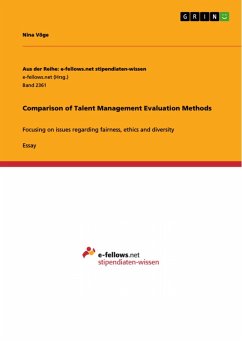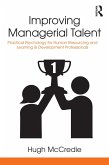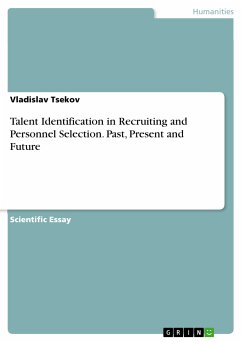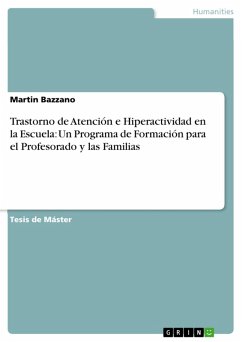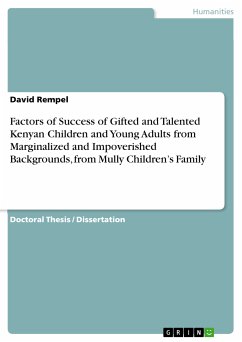Essay from the year 2017 in the subject Psychology - Intelligence and Learning Psychology, grade: 1,5, Aston University, course: Learning and Talent Development, language: English, abstract: An essay about the different evaluation methods of talent management practices. Focusing on issues regarding fairness, ethics and diversity. According to a recent study from Bersin by Deloitte, conducted amongst 220 UK organisations, the spending on Learning and Development (L&D) increased from 2014 to 2015 to an average of £1,068 per learner per year. It was also reported that the number of training hours per employee rose from 14.5 in 2012 to 16.2 in 2015. This increased focus on L&D can be seen as an answer to today's global economy that has created a more complex, dynamic and volatile environment in which companies must learn to compete effectively to achieve sustainable growth. In addition, most organisations are facing internally several challenges including the effective management of talent flow, a shortage of needed competencies and an increasingly diverse and mobile workforce which requires them to put a greater focus on L&D. Against this background, it becomes apparent that the high investments in L&D and thereby the possibility for consistent skill up gradation are of great importance, as what might be an effective training program in the past may not be so in the future. However, with this also the question of the measurability of L&D practices and in turn of their identifiable impact on the organisations' overall effectiveness arises. In this light, this essay strives to explain the importance of the evaluation of talent management practices by contrasting and comparing different ways of monitoring and evaluating the impact and success of these whilst considering possible issues related to fairness, ethics and diversity.
Dieser Download kann aus rechtlichen Gründen nur mit Rechnungsadresse in A, B, BG, CY, CZ, D, DK, EW, E, FIN, F, GR, HR, H, IRL, I, LT, L, LR, M, NL, PL, P, R, S, SLO, SK ausgeliefert werden.

